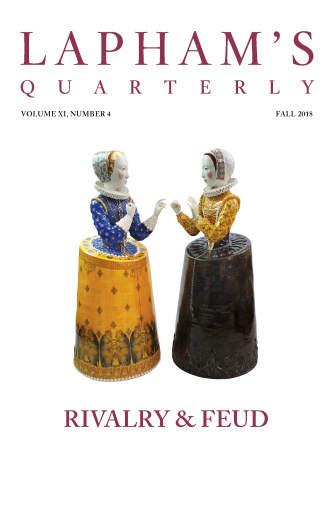Nor needs there gardener to set or sow,
To plant or prune; for of their own accord
All things as they created were do grow,
And yet remember well the mighty word,
That bade them to increase and multiply:
Nor do they need with water of the ford
Or of the clouds to moisten their roots dry;
For in themselves eternal moisture they imply.
Infinite shapes of creatures there are bred,
And uncouth forms, which none yet ever knew;
And every sort is in a sundry bed
Set by itself, and ranked in comely rew;
Some fit for reasonable souls to endue;
Some made for beasts, some made for birds to wear;
And all the fruitful spawn of fishes’ hew
In endless ranks along enrangèd were,
That seemed the ocean could not contain them there.
Daily they grow, and daily forth are sent
Into the world, it to replenish more;
Yet is the stock not lessenèd nor spent,
But still remains in everlasting store
As it at first created was of yore:
For in the wide womb of the world there lies
In hateful darkness and in deep horrór
An huge eternal Chaos, which supplies
The substances of Nature’s fruitful progenies.
Published with the encouragement of Sir Walter Raleigh, Edmund Spenser’s most famous work, The Faerie Queene, was fancied by Queen Elizabeth, to whom the poem was dedicated, and introduced a new verse form now known as the nine-line “Spenserian” sonnet.
Back to Issue



